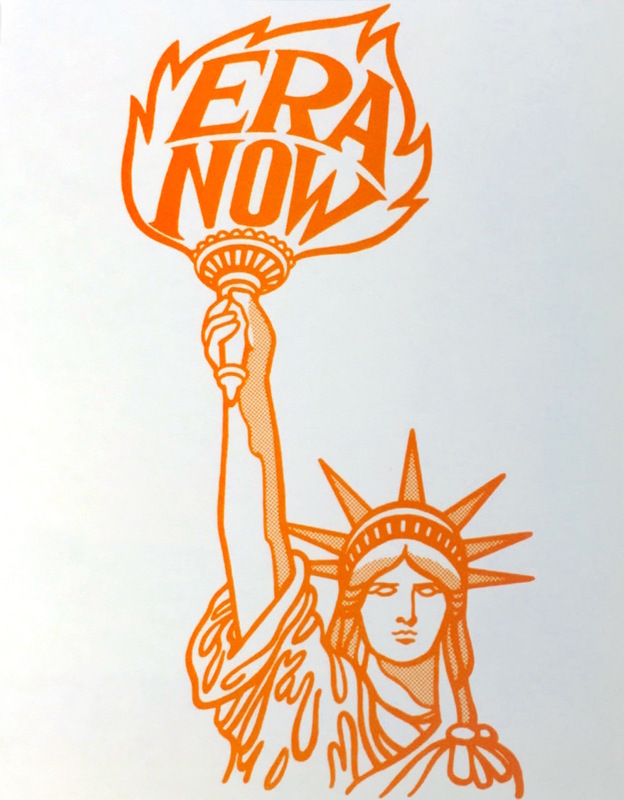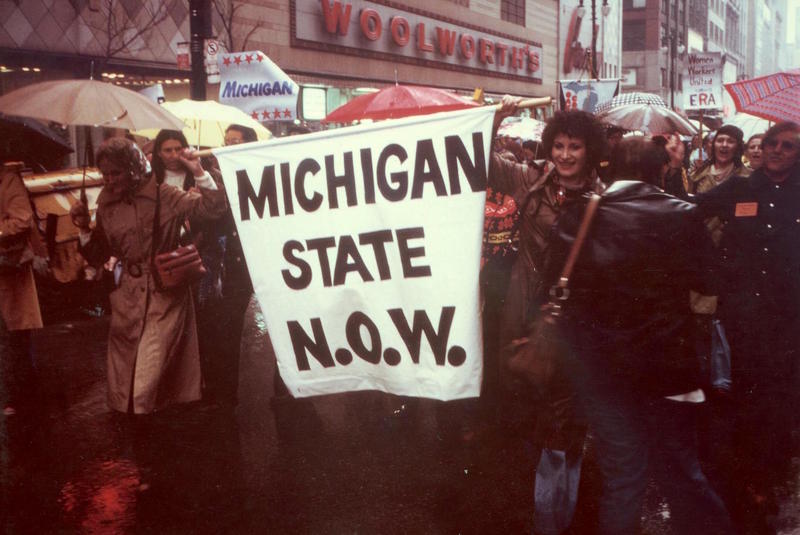Women's Liberation Movement
The second wave of feminism washed over the University of Michigan more immediately than the first. While earlier women became more politically involved only after graduating from U-M, in the 1960's and 1970's there was a feminist awakening for students on campus. Those engaged in this work fought for the Equal Rights Amendment, a women's studies department, reproductive justice, and general conciousness raising.
During its height, the Ann Arbor-Washtenaw National Organization for Women was comprised mainly of women students and faculty within the University of Michigan. Dr. Margot Duley-Morrow, who was President of the Michigan State N.O.W, was also Associate Director of the LSA Honors Program at U-M.1
In 1979, the Women and the Law class at U-M wanted to bring in a prominent member of the STOP ERA group to campus to debate the Equal Rights Amendment. Dr. Duley-Morrow wrote to the professors of the course that she was uncomfortable with this, as did many other individuals and organizations who supported the amendment. Their concerns revolved around the fact that it seemed there would be no speaker to represent the benefits of the ERA, and that the opponent would stand alone in her ability to convince the students. Many were also concerned that such a issue was to be up for debate at all.2
This issue of controversial political debates has stayed prevalent on the University of Michigan campus as recently as February 2016, when a speaker known for his statement "feminism is cancer" was involved in a debate with a woman who identified as a second-wave feminist. Many people felt that this event was in poor taste for several reasons and that it did not stay true to the value of inclusivity towards which U-M purports to strive.
1. National Organization for Women, Michigan Conference Records 1969-1996, Bentley Historical Library, University of Michigan.
2. Ibid.



